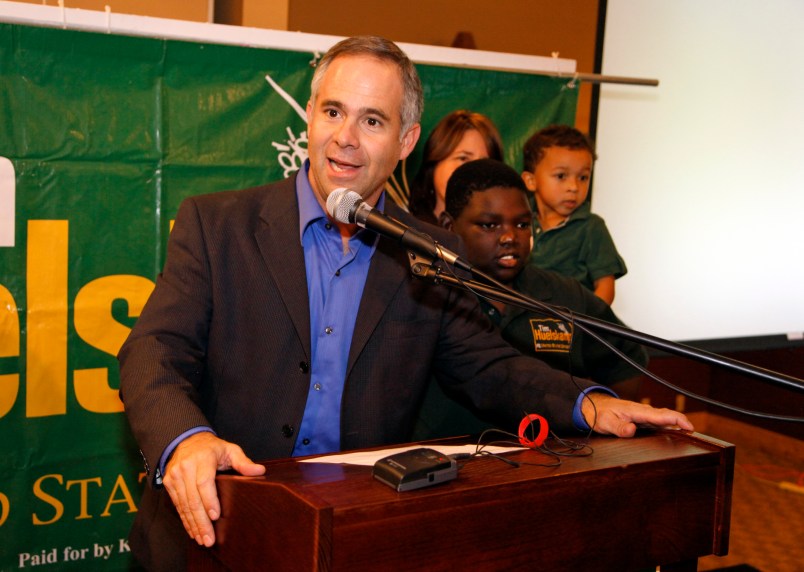While some Republican lawmakers are attempting to hammer out a contingency plan in the case that an upcoming Supreme Court ruling invalidates federal health insurance subsidies for millions of Americans, other House GOPers are showing resistance to such a solution. Their reasoning? Since the constituents in their districts mostly don’t receive the subsidies, they don’t need to support keeping the subsidies alive for others.
Noting that only 1.9 percent of the people he represents are receiving the federal subsidies, Rep. Tim Huelskamp (R-KS) told the Washington Examiner, “I can vote with the 98.1 percent — I usually win the election that way.”
According to the Examiner report, some Republicans feel that they would receive more blowback if they appeared to give a lifeline to President Obama’s controversial healthcare law than if the subsidies were allowed to lapse.
“Ninety-seven percent of Americans aren’t receiving those subsidies,” Rep. Austin Scott (R-GA) said. “I will tell you I’m a ‘no’ on voting to extend those subsidies unless the president is willing to sit down and work with us and fix the problems for that 97 percent.”
Such an attitude could prove problematic for Republicans, particularly those in the Senate, who are beginning to coalesce around a plan offered by Sen. Ron Johnson (R-WI) that would extend the subsidies through 2017 on the condition that Obamacare’s individual and employer mandates are eliminated. Thirty-one Republicans, including leadership, have signed on to the proposal, which is expected to be non-starter among Democrats and the White House because of the mandate provisions.
The scrambling is in anticipation to the Supreme Court’s pending ruling in King v. Burwell, in which the challengers are arguing that federal tax credits offered to certain health insurance consumers are illegal in states where the federal government, rather than the state, has set up the insurance marketplace. A ruling for in the challengers’ favor has the potential of eliminating the tax credits for some 6.4 million people in the 34 states most likely to be affected, according to a Kaiser Family Foundation report.
While some districts may be spared from any major effect, the ruling has broader implications for the Republican Party. Among the states expected to be the hardest hit are Florida, North Carolina, Pennsylvania, Virginia and Ohio, all major players in the 2016 presidential election.
There is debate as to which party would bear more of the blame if the subsidies were eliminated. However Huelskamp called the issue’s political influence “vastly overestimated.”







Their complete and flagrant disregard for folks not as fortunate as they are continues to stun me. I should be all stunned out by now,
So he is fine with being a member of the “F the poor” party. Very Christian of him. Probably feels persecuted for his beliefs.
Probably should prosecuted…
We must remember that Republicans get elected by being financed by the rich who do not like paying taxes and like big federal kickbacks in the form of generous federal contracts to their companies for donating a few thousand dollars to a Republican candidate’s PAC.
Caring for the poor, the sick, and those unlucky enough to suffer a costly medical injury in an accident, hey, it’s a minority of real voters in states like Kansas, at least, so far, it is.
It really is hard not to have utter contempt for the Republican Party.
Funny. He is receiving subsidies for his and his families insurance but a big fuck you to his constituents. Ask him if he is willing to give up his subsidies and you will get a very interesting answer. See what Lisa Murkowski said about that. The GOP senator from Alaska.